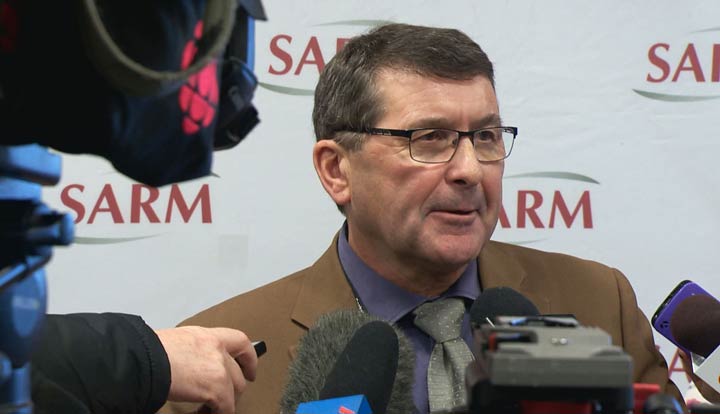The president of the Saskatchewan of Association of Rural Municipalities (SARM) wants to meet with the chief of the Federation of Sovereign Indigenous Nations (FSIN) about a contentious resolution the association passed this week at its annual convention.

The FSIN is upset with the resolution calling on the association to lobby the federal government to expand the rights and justification for people to defend themselves, persons under their care and their property.
READ MORE: SARM president doesn’t believe self defence resolution promotes violence
FSIN said it was “shocked and disgusted at the violent intentions” behind the resolution and links it to the fatal shooting of an indigenous man on a farm near Biggar, Sask.
SARM president Ray Orb said the resolution was not directed at anyone in particular.
He said it’s more about a rise in the number of break-ins and thefts in both rural and urban areas.

Get daily National news
Orb said he would like to see his group and FSIN work together on issues such as policing, fire protection services and economic development in rural areas because those issues affect members of both groups.
“We have been told that the emphasis is the search for drug money and also obviously, there are some people out of work that are desperate. In some cases, they may be going to someone else’s property, stealing things and then reselling them.”
Colten Boushie, who was 22, of the Red Pheasant First Nation, was shot and killed Aug. 9 while riding in an SUV that went onto a farm.
The farm owner, Gerald Stanley, is charged with second-degree murder. His preliminary hearing is scheduled for early April.
Orb has said the association has been working with RCMP to find a solution to better protect rural residents.
READ MORE: Sask. RCMP urge safety, prevention first amid frustration about rural crime
RCMP Cpl. Mel Zurevinsky spoke to delegates on the final day of the SARM convention about rural crime watch groups.
Zurevinsky didn’t comment on the resolution, but says rural crime watch groups are not encouraged to take action against suspects.
“As far as people chasing them down, no that that is not what rural crime watch is about,” Zurevinsky said.
“We advocate that you don’t take physical action, that you don’t have weapons, and through communication we can solve a lot of rural crime.”
The system encourages communities to communicate and look out for one another.
With files from Global News





Comments